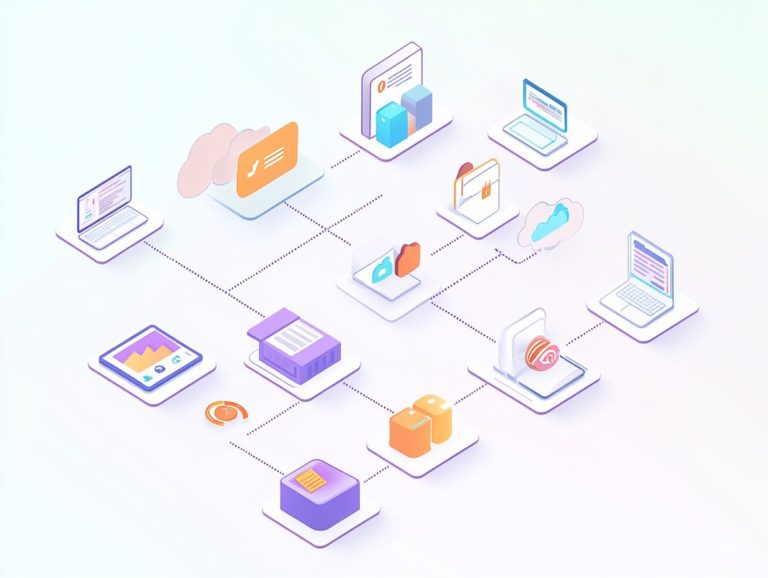The Importance of Security in CRM Implementation
In today s digital landscape, implementing Customer Relationship Management (CRM) systems is essential for businesses aiming to streamline operations and enhance customer interactions.
However, the path to effective CRM integration comes with security challenges that could compromise sensitive data and erode customer trust.
This article delves into the critical importance of security in CRM implementation, shedding light on common threats and providing best practices to protect your systems.
Discover how to select the right CRM and empower your team to safeguard your invaluable data with confidence.
Contents
- Key Takeaways:
- Understanding CRM Implementation
- Why Security is Crucial in CRM Implementation
- Common Security Threats in CRM Implementation
- Best Practices for Ensuring Security in CRM Implementation
- Choosing a Secure CRM System
- Training Employees on Security Protocols
- Frequently Asked Questions
- Why is security important in CRM implementation?
- How can security help with CRM implementation?
- What are the consequences of not prioritizing security in CRM implementation?
- Can security measures slow down the CRM implementation process?
- What steps can be taken to ensure security in CRM implementation?
- Is it possible to have too much security in CRM implementation?
Key Takeaways:
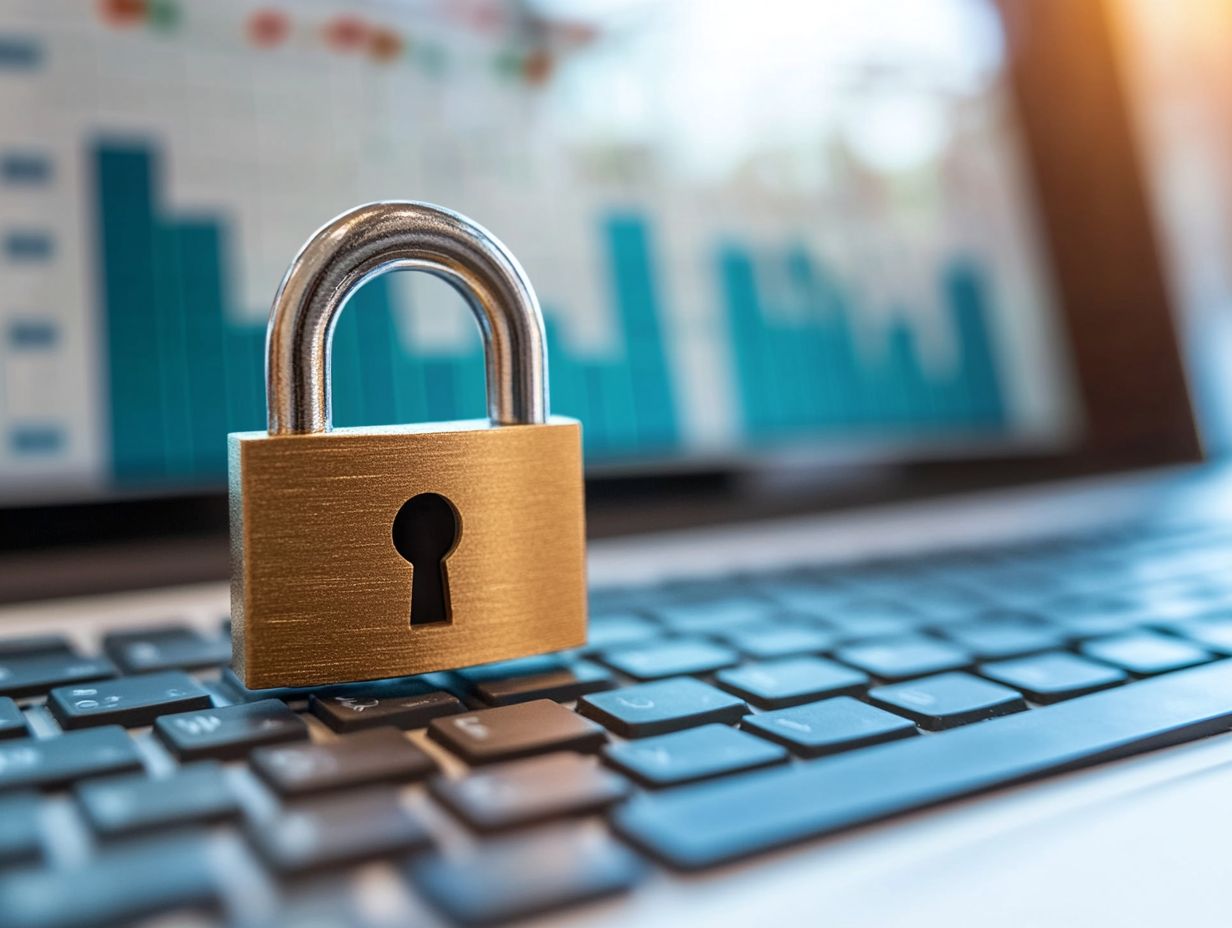
- Protect sensitive data and maintain customer trust by prioritizing security in CRM implementation.
- Stay vigilant against cyber threats like data breaches, hacking, and employee errors.
- Ensure security in CRM implementation by implementing strong encryption, strict access controls, and robust authentication methods to keep your data safe.
- Educate employees on security protocols to further enhance protection.
Understanding CRM Implementation
CRM implementation represents a sophisticated strategy in the business landscape, designed to elevate customer relationships and refine customer experiences.
By harnessing advanced CRM software, you can adeptly manage interactions with both current and prospective customers. This ensures that sensitive customer data is handled with the utmost care and security.
When executed successfully, CRM can profoundly enhance customer loyalty and retention. It provides you with the essential tools to excel in a competitive marketplace.
Definition and Purpose
CRM software serves as a vital tool for effectively managing customer data, interactions, and relationships. By centralizing customer information, you can track every interaction meticulously, ensuring that no detail slips through the cracks.
The primary goal of CRM is to enhance your customer relationships while streamlining processes across sales, marketing, and support departments.
With the integration of CRM systems, you gain valuable insights into customer behavior, preferences, and purchasing patterns. This enables a more personalized engagement that directly contributes to improved customer satisfaction and loyalty.
By utilizing CRM, you automate tasks, foster collaboration among your teams, and access analytics that guide your strategic decision-making. This ensures your business remains competitive in a rapidly evolving market.
Why Security is Crucial in CRM Implementation
Security is paramount in your CRM implementation. As you manage sensitive customer data, it’s crucial to recognize the importance of testing in CRM implementation, as this information can attract cybercriminals and pose significant risks if not adequately safeguarded.
A data breach can inflict severe reputational damage and erode customer trust. Therefore, it is essential for you to adopt robust security measures. This includes strong encryption, strict access controls, and robust authentication methods to keep your data safe.
By ensuring data security, you not only protect your business but also preserve the integrity of your customer relationships.
Protecting Sensitive Data
Protecting sensitive customer data is crucial when implementing CRM, as data breaches can seriously undermine both customer trust and your organization s reputation.
To mitigate these risks, you should adopt a multifaceted approach that incorporates robust encryption methods, strict data retention policies, and clearly defined security protocols.
Encryption is like a secret code that keeps your data safe from prying eyes. Meanwhile, by implementing a data retention policy, you can effectively manage how long sensitive information is stored, significantly lowering the risk of exposure.
Moreover, adhering to established security protocols such as regular audits and employee training is vital for maintaining a secure environment. This careful approach safeguards customer information and strengthens your CRM systems.
Start strengthening your CRM security today and watch your customer trust soar!
Maintaining Customer Trust
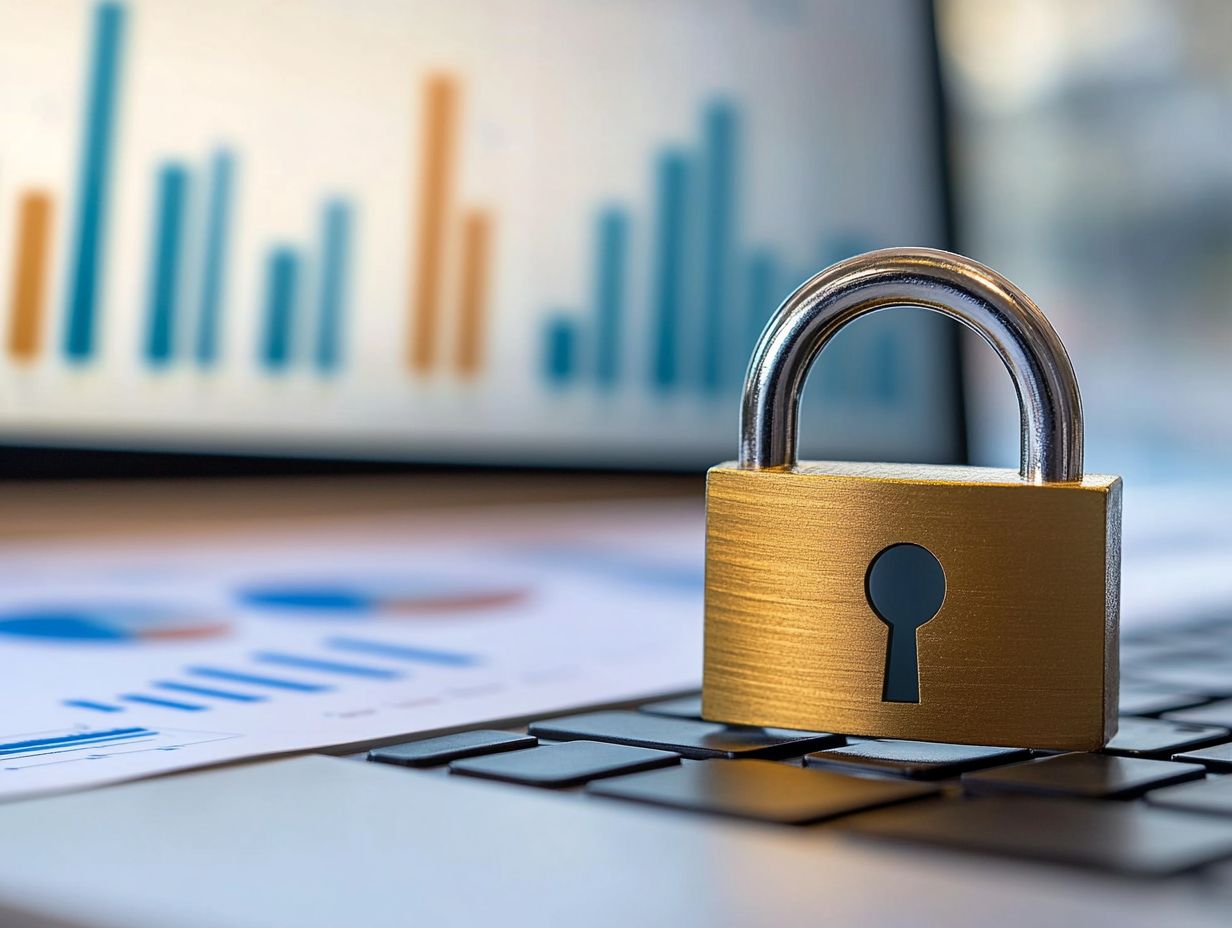
Customer trust is vital for your business. This is especially true during CRM implementation, where data security is closely examined.
Data breaches and cyber threats are on the rise. Customers expect their personal information to be handled with care and security.
To enhance confidence, implement strong security steps like encryption and regular audits. Offer clear insights about data usage and safety.
Engage with customers about your security practices. Address their concerns to foster a trusting environment.
Common Security Threats in CRM Implementation
Understanding security threats in CRM is essential. Organizations must protect sensitive customer data from risks.
Data breaches can lead to financial losses and damage reputations. Internal threats and employee errors increase vulnerabilities too.
With malware and phishing attacks on the rise, businesses must remain vigilant. Proactive measures are not just recommended; they are necessary!
Data Breaches and Hacking
Data breaches pose serious risks to businesses using CRM systems. Cybercriminals target sensitive customer data, leading to financial losses and decreased trust.
The Equifax breach of 2017 exposed 147 million individuals, resulting in a $700 million settlement. Target’s 2013 breach compromised over 40 million accounts and hurt customer loyalty.
To protect against these risks, businesses must prioritize strong cybersecurity measures:
- Advanced encryption technologies
- Regular security audits
- Comprehensive employee training to promote security awareness
Employee Errors and Insider Threats
Employee mistakes and insider threats can create major vulnerabilities in CRM systems. These can lead to unauthorized access and data breaches, risking customer trust.
Human behavior greatly affects overall cybersecurity. By investing in training and security awareness sessions, empower employees to identify threats.
A culture of vigilance strengthens security and encourages proactive defense against insider threats.
Best Practices for Ensuring Security in CRM Implementation
Implementing best practices for security is critical. These measures safeguard customer data and maintain trust.
By prioritizing security, you protect valuable information and boost your reputation with clients and partners!
Implementing Strong Password Policies
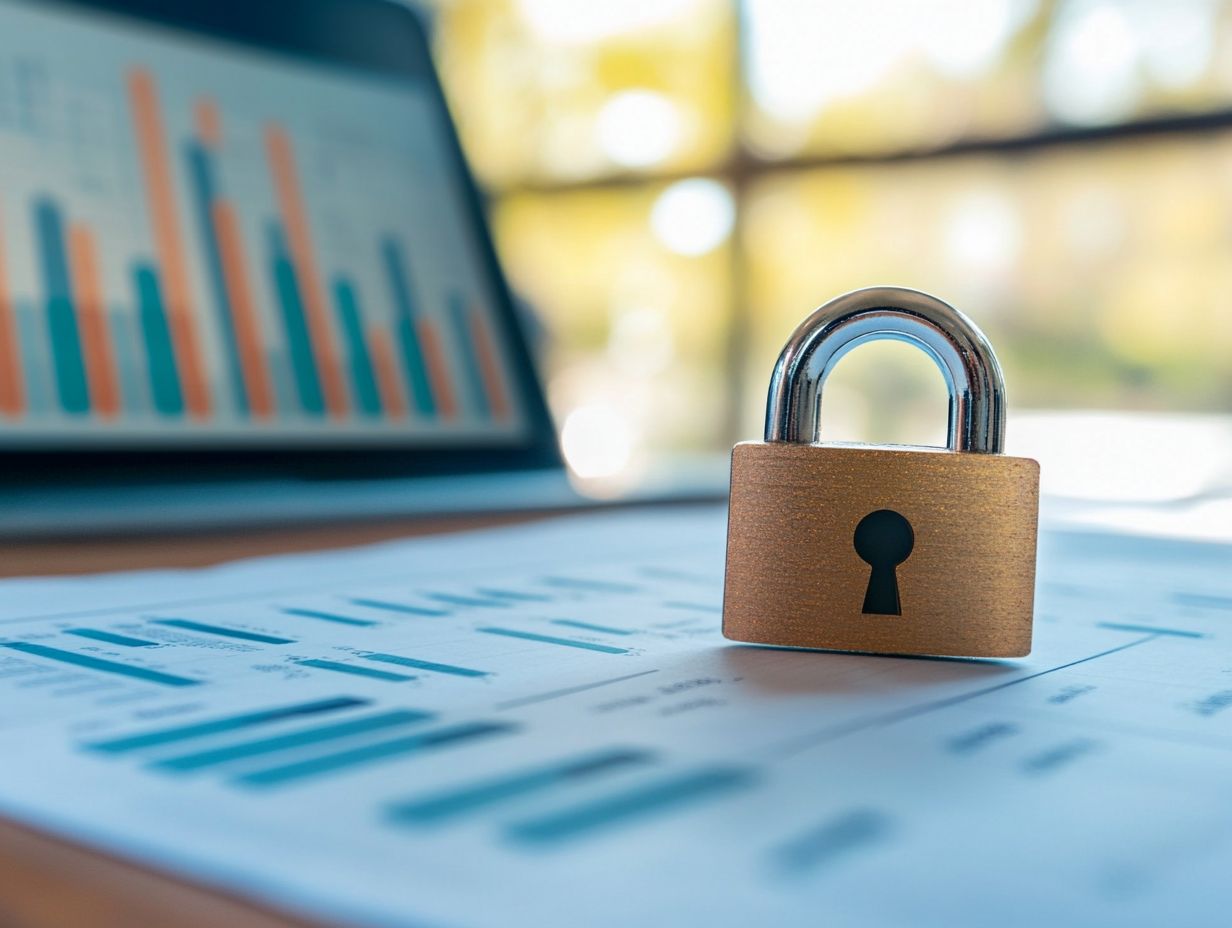
Implementing strong password policies is a fundamental security measure you can adopt to protect sensitive customer data within your CRM systems. These policies should emphasize password complexity, mandating a mix of uppercase and lowercase letters, numbers, and special characters to create passwords that are difficult to guess.
Regular updates are essential. Frequently changing passwords diminishes the risk of unauthorized access from former employees or looming cyber threats.
By customizing password requirements based on individual user roles, you can enhance security even further. This ensures that sensitive information receives heightened protection, especially for those in critical positions.
Cultivating a culture of awareness around these practices will significantly strengthen your overall cybersecurity posture, ultimately fostering customer trust and ensuring compliance with data protection regulations.
Regular Security Audits and Updates
Conducting regular security audits and updates is essential to identify vulnerabilities and ensure that your CRM implementation remains secure. By systematically evaluating your security posture, you can pinpoint weaknesses that cyber threats might exploit.
Think of these audits as a powerful tool that boosts your security! They not only help with compliance but also instill confidence among clients who depend on secure data management.
Staying proactive with timely updates is crucial in mitigating risks associated with newly discovered vulnerabilities, safeguarding sensitive customer information.
To effectively conduct these audits, consider these best practices:
- Bring in expert help for deeper insights.
- Utilize automated tools for a thorough analysis.
- Establish a regular schedule that aligns with your organization s operational rhythms to ensure comprehensive coverage.
Choosing a Secure CRM System
Selecting a secure CRM system is an essential choice for any business aiming to safeguard sensitive customer information and elevate data security. This decision not only protects your clients but also fortifies your brand’s integrity in an increasingly digital landscape.
Key Features to Look For
Make sure to focus on key features now to protect your data! When selecting a secure CRM system, consider robust encryption technologies; these are vital for ensuring that sensitive customer information stays protected both during transit and while at rest.
Implementing security measures like two-step verification is equally important as they play a crucial role in verifying identities and preventing unauthorized access.
Don t overlook the necessity of regular security updates and audits. They help you identify vulnerabilities early and address them proactively.
Data access controls are another essential feature, allowing you to limit information based on user roles. This ensures that employees only have access to what they truly need for their job.
By prioritizing these attributes, you can significantly reduce the risk of data breaches and enhance trust with your clients.
Training Employees on Security Protocols
Training your team is crucial it s your first line of defense against threats! By prioritizing this training, you equip your team with the necessary knowledge to recognize and mitigate risks, ultimately fortifying the integrity of your system.
Importance of Employee Education
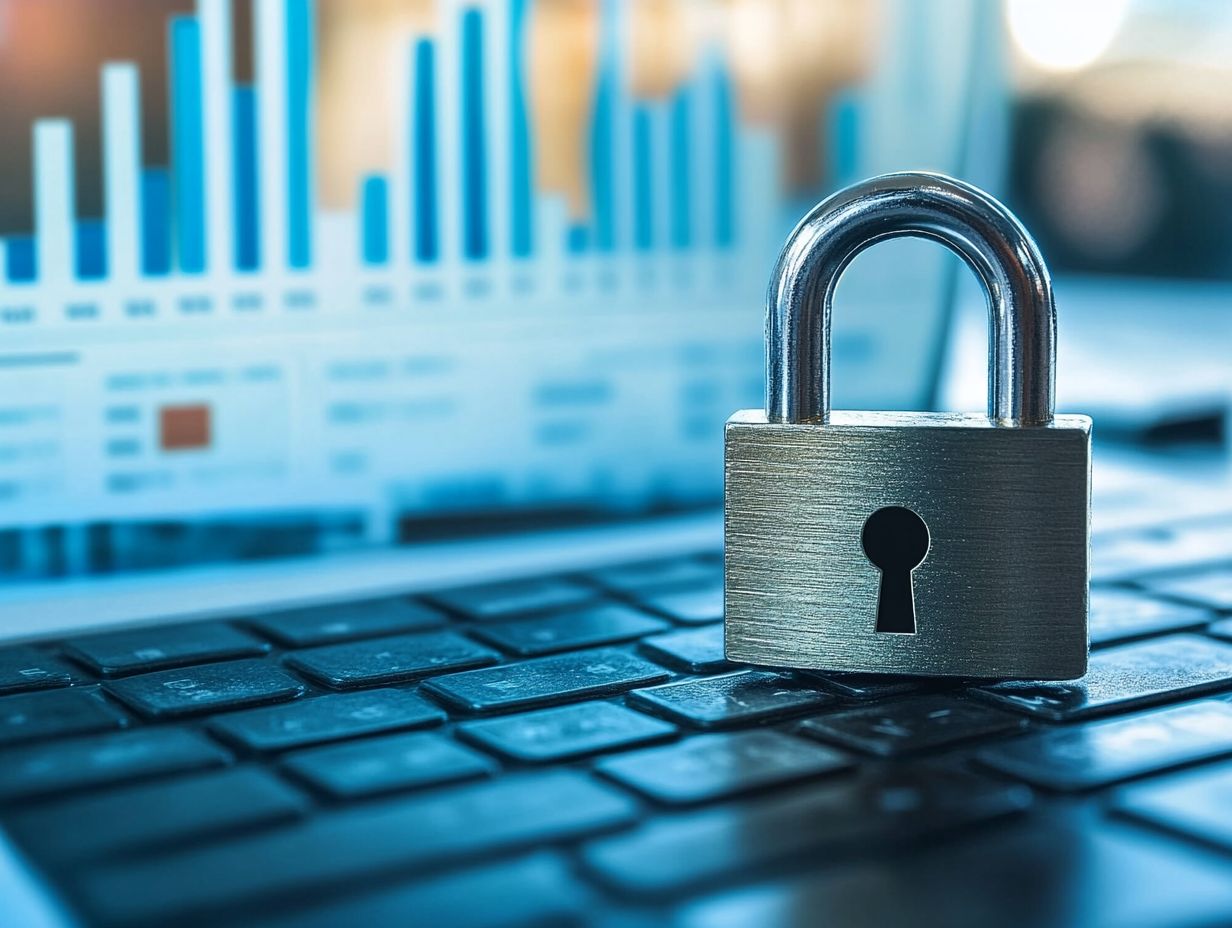
Employee education is key to preventing data breaches. When employees understand potential threats, they become our first line of defense.
This education includes recognizing risks like phishing and social engineering, which can lead to unauthorized access.
Organizations such as KnowBe4 and SANS Institute offer training that empowers employees to identify and respond to security incidents. Through interactive simulations, they learn the importance of security protocols and develop a proactive mindset.
Ultimately, this builds a culture of security within the organization.
Frequently Asked Questions
Why is security important in CRM implementation?
Security in CRM protects sensitive customer data and prevents unauthorized access. It maintains customer trust and ensures the confidentiality of their information.
How can security help with CRM implementation?
Security measures like encryption and firewalls safeguard customer data. They also ensure compliance with regulations, making the CRM system secure and reliable.
What are the consequences of not prioritizing security in CRM implementation?
Neglecting security can lead to data breaches and loss of customer trust. This may cause financial loss and damage to the company’s reputation.
Can security measures slow down the CRM implementation process?
Implementing security measures may add some time to the process, but it is a necessary investment. The risks of not having proper security far outweigh minor delays.
What steps can be taken to ensure security in CRM implementation?
Steps include conducting a risk assessment, using data encryption, and establishing access controls. Regularly updating protocols and training employees on security practices are also essential.
Is it possible to have too much security in CRM implementation?
Having strong security is important, but too much can lead to complexity. It s crucial to balance security with usability for an effective CRM implementation.

